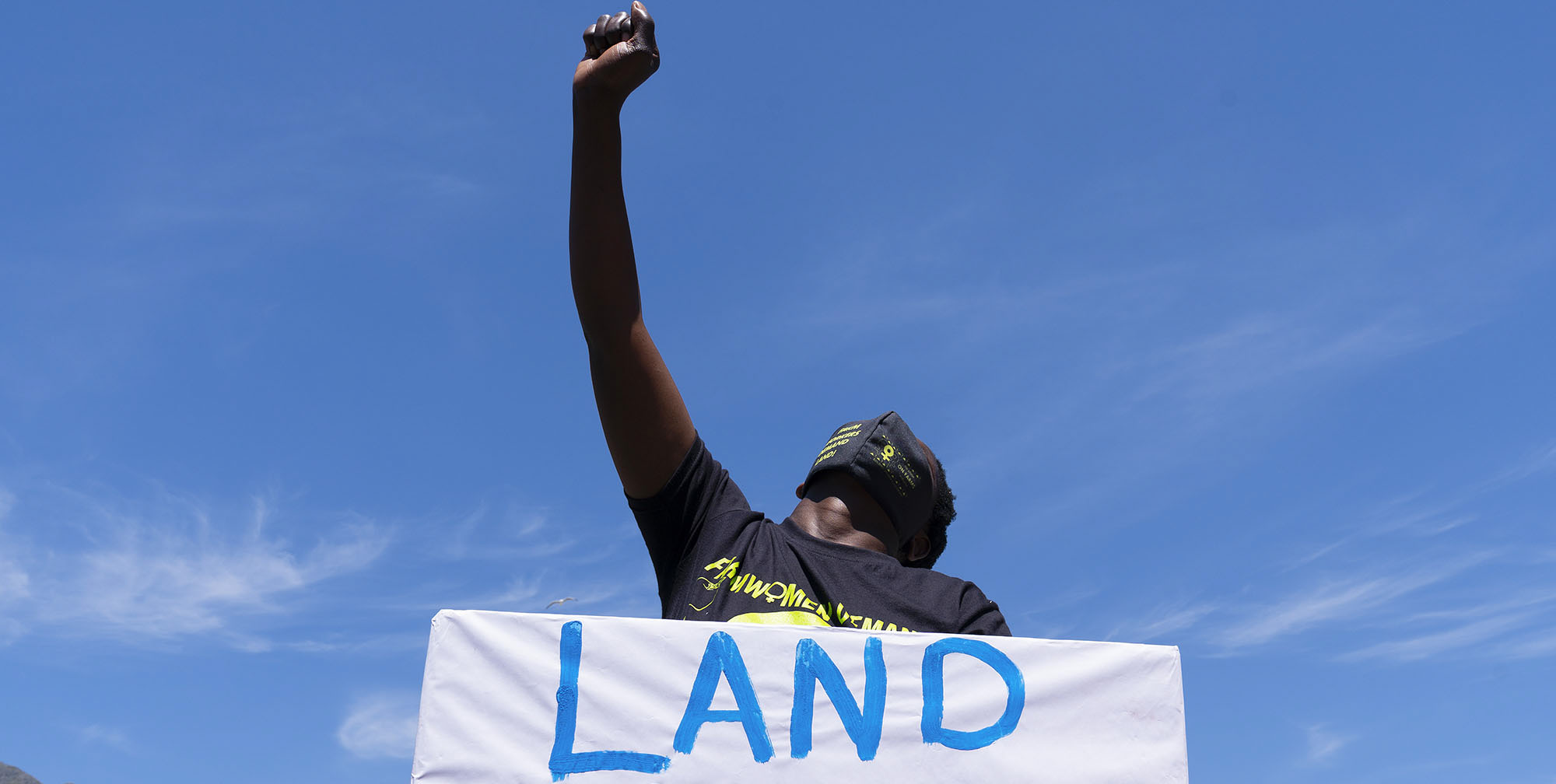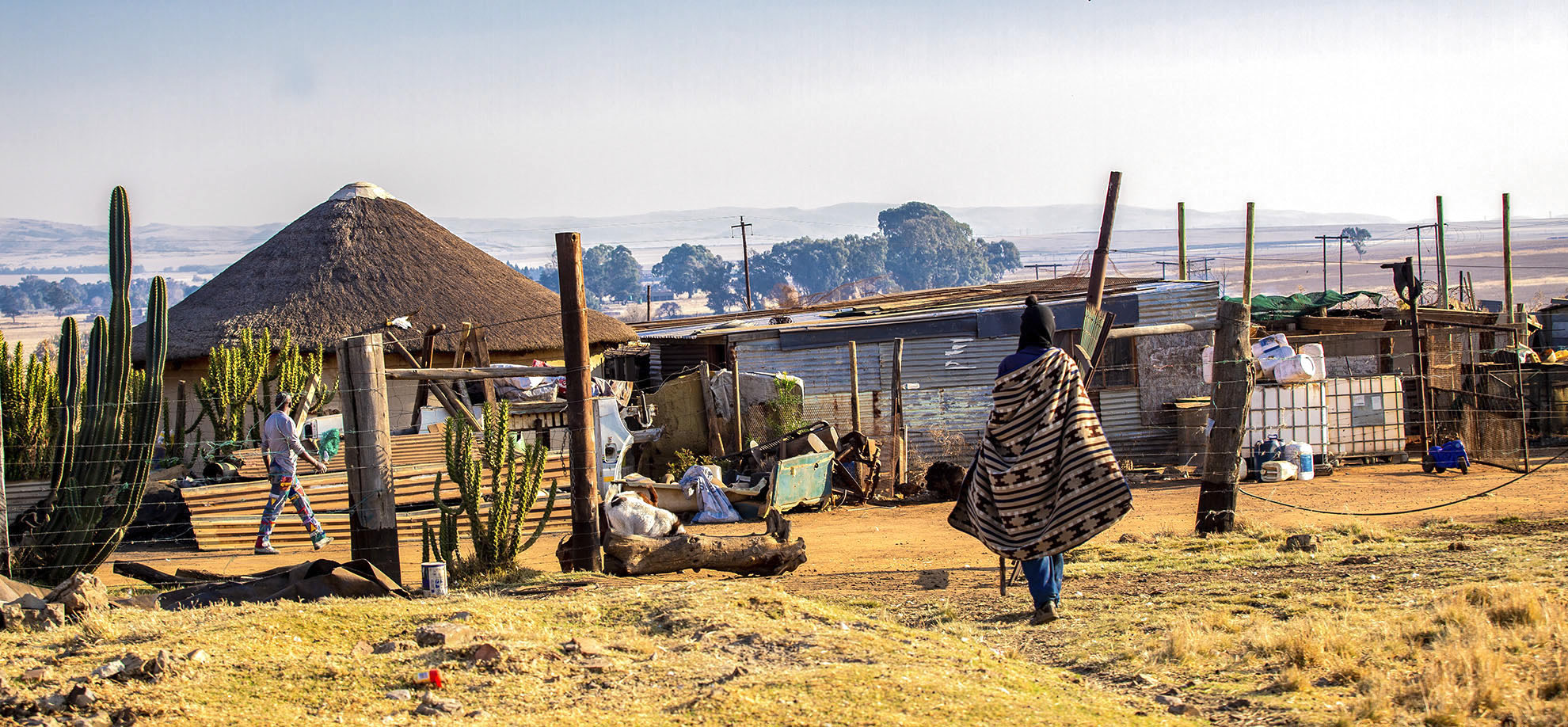Dr Aninka Claassens is a chief researcher at the Land and Accountability Research Centre in the Law Faculty at the University of Cape Town.
The scale and seriousness of the violence and looting in South Africa in July has refocused attention on South Africa’s staggeringly high levels of structural inequality and exclusion. New interventions are being sought to address a ticking time bomb of despair and hopelessness. The government is promising to throw money at the problem. Think tanks are grappling with scenario options.
But not much is being said about the immediate and obvious benefits that would accrue if the government would simply desist from practices that dispossess vulnerable South Africans of their property and citizenship rights.
First, do no harm.
The past 10 years have seen a gargantuan battle between the courts and government over land reform and the property rights of the 18 million South Africans living in former homeland areas. Time and again the courts have ruled in favour of land reform and the property rights of rural people. The government has continually ignored these judgments or intervened on the side of traditional leaders and other elites.
In June, rural people won yet another massive court victory, this time in KwaZulu-Natal against the Ingonyama Trust and the minister of land reform. The Pietermaritzburg High Court ruled that the trust had acted unlawfully in extorting rents from people whose customary ownership rights remain unrecorded and therefore structurally vulnerable.
The facts of this case illustrate how the government connives in patterns of elite enrichment that prey directly on the residual property rights of the poor and vulnerable.
Government intransigence
This is the fourth high-profile judgment that orders the land reform ministry to honour constitutionally enshrined land rights that it has breached and to regularly report back on its progress towards obeying the court order. Courts do not easily grant structural interdicts such as this, in which they retain jurisdiction over a case and require the government to report back to them. They do so when the facts before them show the presence of government intransigence in the face of systematic breaches of basic rights.
Two of the previous such orders were handed down by unanimous decisions of the Constitutional Court, in 2018 and 2019. The first ordered government to expedite restitution claims that had been lodged before 1998. The second ordered the government to process the land claims of labour tenants that had been ignored for 25 years. Many claimants have died in despair during this time. (The third order related to long process delays and state failure to comply with a court order in the District Six restitution claim in Cape Town).
The ground-breaking Ingonyama judgment cancels all the residential leases that the Ingonyama Trust Board (ITB) forced residents to sign on threat of expulsion from their land and communities. It orders the ITB to refund all the rent money collected since it initiated the “conversion to leases” programme in 2007. It orders the land reform minister to issue residents with written proof of their underlying land rights. Ironically there is no option but for this proof to take the form of the old “Permission to Occupy” certificates that were issued during apartheid. This is because of Parliament’s long delay in enacting a law to secure vulnerable tenure rights as required by section 25(9) of the Constitution.
Will the judgment make a difference?
The legal victories have been celebrated, but will these far-reaching court orders make a difference to the lives of rural people?
On the positive side, the Ingonyama judgment orders the trust board and the minister to report on progress in the matter every three months. But repaying rental income that has already been spent will not be easily achieved, and the capacity and commitment of officials to issue written records of individual rights does not inspire confidence — these are the same officials who previously “lost” thousands of labour-tenant and restitution claims.
The daunting capacity issue is a symptom of a far more intractable problem — that of a failure of political will in the face of deeply entrenched elite alliances within the ruling party. Land, and the budget for land reform, have become resources for distribution within networks of patronage politics.
The problem goes beyond the hijacking of processes for proactive land reform. Vulnerable rural people are being systematically dispossessed of the precariously held property rights they managed to retain in the face of the ravages of apartheid and forced removals. The Ingonyama judgment describes the mechanics of this process of dispossession in detail and records what had happened under the watch of the minister and Parliament, who received annual reports of the “progress” being made by the Ingonyama Trust.
No appeal
The minister chose to support the claims of the Ingonyama Trust in the litigation rather than those of rural residents. (To her credit, minister Thoko Didiza has instructed that there should be no appeal against the judgment. It remains to be seen whether the Ingonyama Trust will comply with this instruction. The minister appoints the members of the board.)
The rent-seeking practices of the Ingonyama Trust in KwaZulu-Natal are a local variation of a wider theme of government empowering traditional leaders to treat “communal land” in former homelands as their personal property, without regard to the rights of the people who have lived on and inherited this land over generations. The judgment is a thundering rebuke to that approach.
 A woman protests in Cape Town in 2020 against the government's land reform strategy. (Photo: EPA-EFE / Nic Bothma)
A woman protests in Cape Town in 2020 against the government's land reform strategy. (Photo: EPA-EFE / Nic Bothma)
It explodes the myth of “communal land” by showing that all allotted fields and homestead land is the private property of particular families.
The Constitutional Court’s Alexkor judgment of 2003 had already upheld communal customary law ownership of land. The Ingonyama judgment goes further in that it describes the ownership rights of families and individuals in respect of specific delineated areas within land owned by broader groups and communities. It reiterates a point made by the Constitutional Court’s Maledu judgment in 2018: the consent of the holder of a customary or informal land right is required before any changes to their land or land rights can be made.
Former homelands
The densely populated former homelands have proved, ironically, to be extremely rich in minerals despite constituting only 13% of South Africa. The epicentre of the country’s mining boom has moved away from depleted gold and diamond areas to these platinum, coal and iron-rich areas leaving a trail of devastation, dispossession and deepened poverty in its wake.
The powers accorded to traditional leaders were significantly boosted during the Jacob Zuma presidency. But he was neither the first nor the last ANC president to seek to use the law to bolster the power of traditional leaders at the expense of the property rights and decision-making authority of ordinary South Africans.
Thabo Mbeki signed the Communal Land Rights Act into law in 2004. That act sought to provide traditional leaders with ownership and control over land in the former homelands, but was struck down by the Constitutional Court in 2010 on procedural grounds.
Despite evidence of gross corruption involving some (but not all) traditional leaders contained in the 2017 Kgalema Motlanthe High Level Panel report and the 2019 Presidential Advisory Panel recommendations, President Cyril Ramaphosa assented to the Traditional and Khoi-San Leadership Act in 2019. This act empowers traditional leaders to sign investment deals with third parties without requiring the consent of people whose customary ownership rights are directly affected. The act is unlikely to survive a pending legal challenge.
Waiting in the wings, however, is the draft Communal Land Tenure Bill which again seeks to vest ownership and control of “communal land” in traditional leaders. It remains to be seen whether government pushes ahead with this bill in the face of the comprehensive findings of the Ingonyama Trust judgment.
Accountability
Lack of viable accountability mechanisms is key to the controversy about recent traditional leadership laws. The laws extend the power of traditional leaders at the same time as they undercut pre-existing customary accountability mechanisms. Such mechanisms are to be found in land ownership and layered decision-making authority that vests in families and village-level structures. (It is important to note that the stratum of kings and senior leaders who are empowered by the laws excludes the majority of village-level traditional leaders).
The desperate rebellion in eSwatini shows what happens when absolute power is vested in royalty without structural checks and balances.
The riots in KwaZulu-Natal illustrate what happens when people no longer have a stake in maintaining the status quo.
It is, of course, not only the government that is responsible for the despair, fury and disillusionment that characterises many rural communities. Mining houses and their lawyers have followed the government’s lead in ignoring and discounting the mounting list of judgments affirming customary law ownership and decision-making authority that vests in ordinary people.
Big business and the financial sector remain deeply complicit in the structural ways in which inequality is reproduced, poverty is exacerbated and the hopes and dreams of common citizenship are trampled and destroyed.
During the July looting, ordinary people proved to be a bulwark against the chaos. They cannot be expected to forever serve this role if their property rights continue to be trampled in the interests of placating political elites. DM/MC




 A woman protests in Cape Town in 2020 against the government's land reform strategy. (Photo: EPA-EFE / Nic Bothma)
A woman protests in Cape Town in 2020 against the government's land reform strategy. (Photo: EPA-EFE / Nic Bothma)